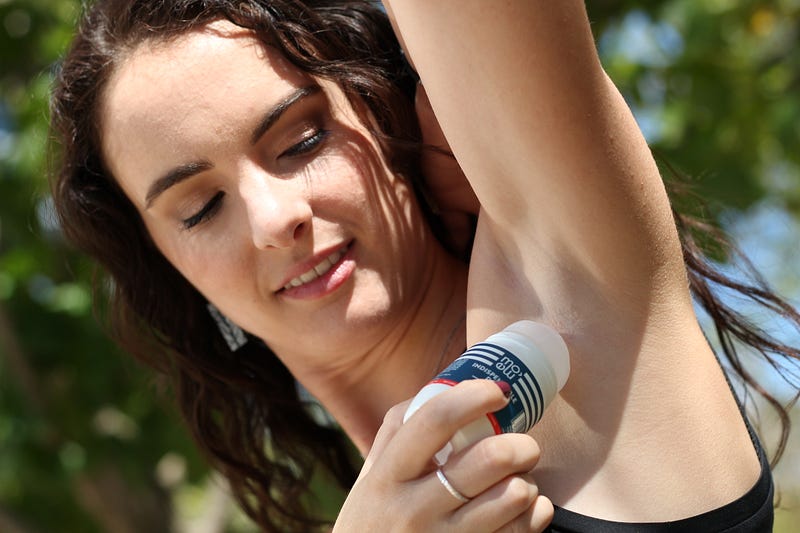Understanding Aluminum in Deodorants: Facts vs. Myths
Written on
Chapter 1: The Chemical Conversation
When it comes to personal care items like soap, shampoo, and deodorants, many are now marketed as “[chemical-name-here]-free.” A particular focus is on aluminum in deodorants. But why is there a movement to avoid applying aluminum to our armpits? Are there real health hazards associated with aluminum?
Here’s a breakdown of the science:
What Exactly is Aluminum?

Photo by Ana Essentiels on Unsplash
Most individuals recognize aluminum from its use in cooking foil, yet we haven't seen a commercially viable aluminum-free variant of it! With aluminum being so widely utilized, it’s important to understand its true nature.
Aluminum is classified as a chemical element with the atomic number 13. Unlike many substances deemed “unsafe,” aluminum is naturally occurring rather than synthetically produced. This lightweight, shiny metal has been used by humans for centuries, even before its chemical properties were fully understood.
For instance, a metal artifact found in a tomb from the 3rd century shows that aluminum's practical utility was recognized long ago, even before people knew its chemical composition. Predominantly, aluminum is utilized in crafting tools and structures, including aircraft, and is the most abundant metal found in the Earth’s crust, usually existing alongside minerals like bauxite and cryolite.
The Biological Impact of Aluminum
Even if you opt for aluminum-free deodorants, it’s nearly impossible to completely avoid aluminum. Research from the Ciba Foundation Symposium indicates that most adults consume between 1-10 mg of aluminum daily through natural sources, including food and water. Even using metal utensils contributes to this intake.
Though not essential for nutrition, there are no documented cases of aluminum toxicity from dietary sources in healthy individuals. However, direct exposure to aluminum in certain medical scenarios can be neurotoxic. Fortunately, the majority of aluminum we encounter is not absorbed by the body due to protective barriers like skin and the gastrointestinal tract, and what little is absorbed is mostly excreted.
Thus, it’s normal for us to have chronic, minimal exposure to aluminum, which is generally safe.
Additionally, aluminum plays a crucial role in vaccines. The American Academy of Pediatrics states that aluminum has been an important component of vaccines since the 1930s. Specifically, aluminum adjuvants, which are present in quantities below typical daily intake, help boost the immune response to vaccines, although the COVID-19 vaccines do not contain aluminum.
Should I Be Concerned About Aluminum in Deodorant?
Aluminum is commonly included in deodorants because it effectively blocks sweat glands, thereby reducing perspiration and odor. Given aluminum's biological role and overall safety, what prompts concerns about its presence in deodorants? Should you switch to aluminum-free alternatives?
The quick answer is “no.” The rise of aluminum-free products has led many to speculate that aluminum must be harmful if alternatives exist. However, if that logic were valid, companies would have stopped using chemicals altogether.
The presence of “-free” products in the market often reflects consumer demand rather than safety concerns. Research from the Academy of Marketing Science suggests that consumers increasingly favor less processed products, even if the perceived dangers are often exaggerated.
In fact, many people overestimate their understanding of chemical risks, as noted in the journal Food and Chemical Toxicology. This misperception can be fueled by marketing strategies that emphasize the need for “safer” options. Despite this, aluminum-containing deodorants tend to outperform their aluminum-free counterparts in terms of effectiveness.
Worries about aluminum’s neurotoxicity—particularly its alleged link to Alzheimer’s disease—are often misinformed. Such concerns stem from instances of high aluminum exposure, which do not occur with regular deodorant use. Studies cited in Deutsches Ärzteblatt International indicate that serious effects are tied to specific medical circumstances, such as aluminum in dialysis fluids or occupational exposure.
Even deodorants with higher aluminum concentrations (10%-30%) do not cause harm, as the aluminum is not absorbed into the body. As per the journal Pediatrics, there is no solid evidence linking aluminum in deodorants to any health risks.
In conclusion, it is important not to rely on anecdotal fears or market-driven narratives when assessing aluminum’s safety. The scientific consensus supports the continued use of aluminum in deodorants, often proving to be more effective than aluminum-free options, which may not provide long-lasting protection.
Chapter 2: Exploring the Myths
In this video titled "Aluminum antiperspirant vs natural deodorant? Both are fine! Don't demonize aluminum #dermbypark," the discussion focuses on the safety and efficacy of aluminum in deodorants versus natural alternatives.
The second video, "IS ALUMINUM BAD FOR YOU? Dermatologist @DrDrayzday," further examines the implications of aluminum exposure and addresses common health myths regarding its use in personal care products.